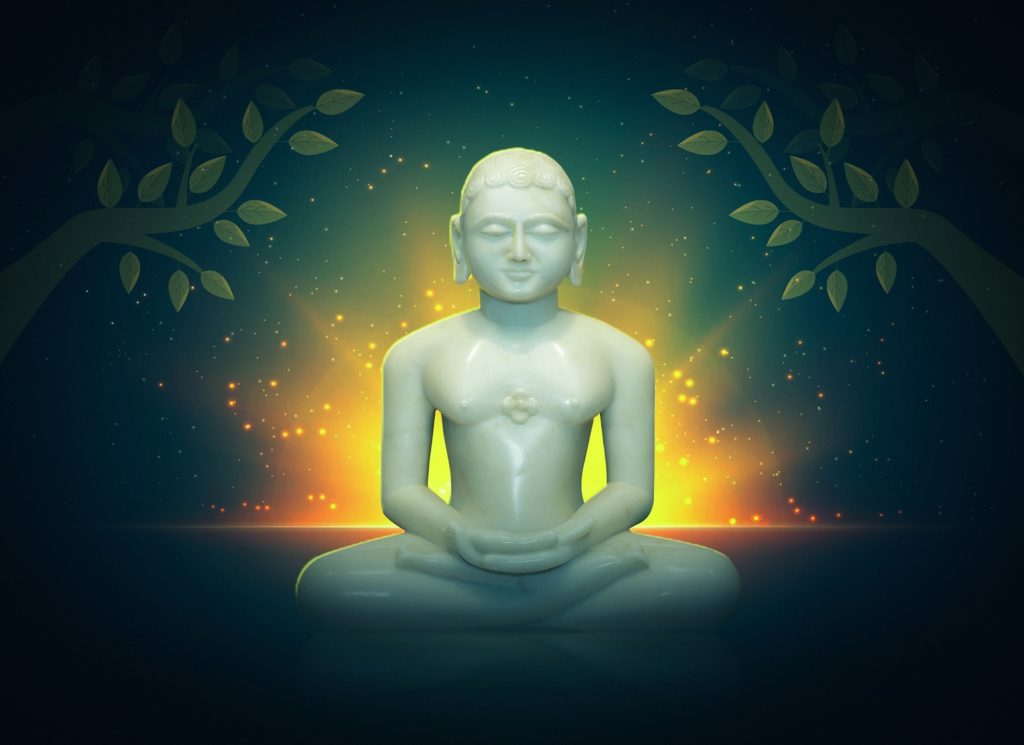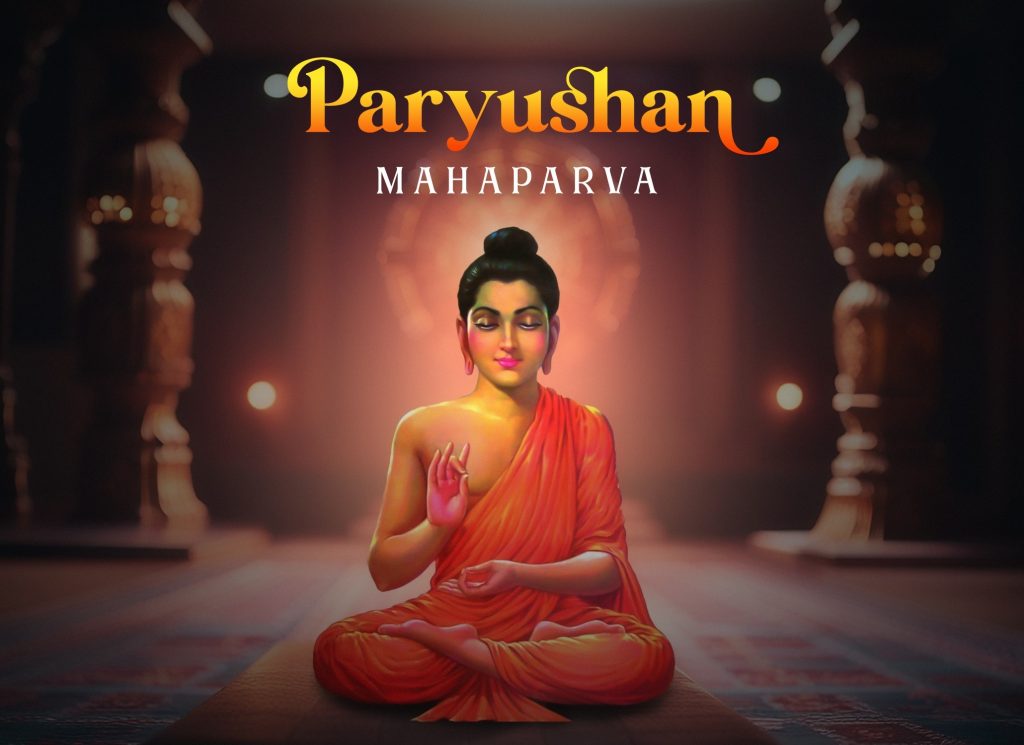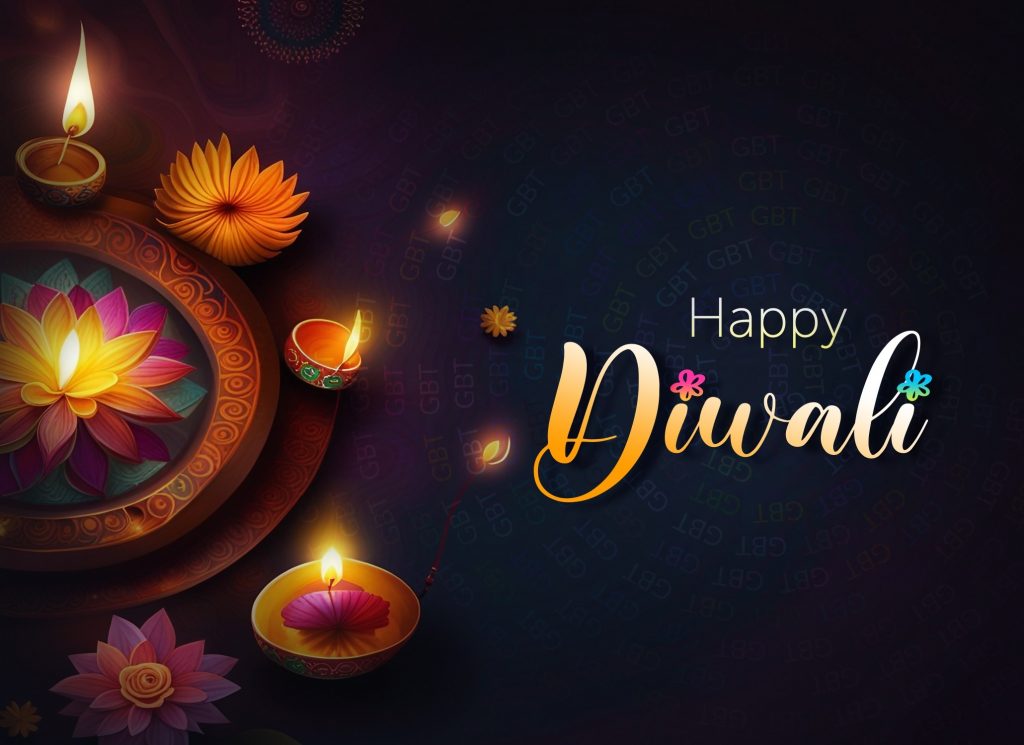
Greater Baltimore Hindu-Jain Temple
P.O. Box 690, 2909 Bloom Road, Finksburg, MD 21048
Jainism
Mahavir Janma Kalyanak (Mahavir Jayanti)

Mahavir Janma Kalyanak, is one of the most important religious festival for Jains. It celebrates the birth of Mahavira, the twenty-fourth and last Tirthankara.
According to Jain texts, Mahavira was born on the thirteenth day of the bright half of the moon in the month of Chaitra in the year 599 BCE (Chaitra Sud 13). Mahavira was named ‘Vardhamana’, which means “One who grows”, because of the increased prosperity in the kingdom at the time of his birth. Mahavira was born as the son of King Siddhartha and Queen Trishala. During her pregnancy, Trishala was believed to have had a number of auspicious dreams, all signifying the coming of a great soul. It is said that when Queen Trishala gave birth to Mahavira, Indra, the head of heavenly beings (Dev) performed a ritual called abhisheka, this being the second of five auspicious events (Panch Kalyanakas) known as Janma Kalyanak.
On this day many devotees from the Jain community of Greater Baltimore Hindu Temple community visit temple to meditate and offer prayers. The ceremonial bath are given to the statues of Lord Mahavira. During the day, most members jain community engage in some sort of charitable act. Lectures by jain scholars when convenient are held in temple to promote of virtue as defined by Jainism. Donations are collected in order to promote charitable missions like saving cows from slaughter or helping to feed poor people. Children form Balvihar prepares and donate vegetarian food to poor people.
Paryushan

Paryushan is the most important annual holy events for Jains and is usually celebrated in August or September. It lasts 8 Days for swetambara and 10 days for digambara sect of Jains . It is believed that the devas (heavenly beings) do an eight-part puja (worship) of the tirthankaras, which takes eight days.
Jains increase their level of spiritual intensity often using fasting and prayer/meditation to help. The five main vows are emphasized during this time. There are no set rules, and followers are encouraged to practice according to their ability and desires. Normally, Digambaras refer it as Das Lakshana Parva while Swetambars refer to it as Paryushan (“abiding” or “coming together”). The duration of Paryushan is for eight days for Swetambara Jains and ten days for Jains belonging to the Digambara sect. The festival ends with the celebration of Kshamapana parva also known as Samvatsari Mahaparva (forgiveness day).
Paryushan means “abiding and coming together”. It is a time when the Jains take on vows of study and fasting.
At the conclusion of the festival, followers request forgiveness from others for any offenses committed during the last year. Forgiveness is asked by saying Micchami Dukkadam to others, which means, “If I have offended you in any way, knowingly or unknowingly, in thought, word or action, then I seek your forgiveness.” Forgiveness is sought not just from human colleagues, but from all living beings ranging from one sensed to five sensed. Forgiving and seeking forgiveness oils the wheel of life allowing us to live in harmony with our fellow beings.
Diwali

In Jainism, Diwali commemorates the anniversary of Lord Mahavir’s attainment of moksha or freedom from the cycle of reincarnation, in 527 B.C.E. Lord Mahavir was the 24th and last Thirtankar of Jainism and revitalized the religion as it is today. First referred to in Jain scriptures as dipalikaya, or light leaving the body, it is said that the earth and the heavens were illuminated with lamps to mark the occasion of Lord Mahavir’s enlightenment.
For Jains, Diwali is a celebration of Lord Mahavir’s teachings and his contributions not only to the religion but to greater humanity. His teachings promote compassion and justice through ahimsa (nonviolence), advocating the importance of all living beings as well as social, political and economic equity. He emphasized aparigraha (non-possessiveness) in order to protect biodiversity from our greed. Most importantly, he taught the concept of anekantvada (multiplicity of views or pluralism) and encouraged individuals to overcome superstition and blind faith and to pursue reason through their own efforts.
Each year Jains light lamps on Diwali to symbolize keeping the light of Lord Mahavir’s knowledge alive and sweets are distributed in celebration of his contributions. Many Jains celebrate Diwali by fasting, singing stavans and chanting mantras to honor Lord Mahavir, while others participate in charity and philanthropy. The day after Diwali marks the Jain New Year, celebrating new beginnings and members of the Jain community greet each other with “Saal Mubarak“ or Happy New Year. According to tradition, the chief disciple of Mahavira, Gandhara Gautam Swami also attained omniscience i.e. absolute or complete knowledge (Keval Gyan) on this day, thus making Diwali one of the most important Jain festivals.
Diwali is about celebrating the victory of good over evil in each and every capacity whether small or large. Each year Diwali is a testament of Lord Mahavir’s teachings of pluralism and harmony in action. The lighting of the lamps denotes knowledge or the removal of ignorance.

Rushabh Dev Bhagvan
| Chyavan Day ( conception ) | Ashadha Vad 4 |
| Birth Place | Vinita Nagri |
| Vansh (caste) | Easvakuvansh |
| Father's Name | NabhiRaja |
| Mother's Name | Marudeva |
| Birth Day | Chaitra Vad 8 |
| Zodiacsign (Rashi) | Sagittarius(Dhan) |
| Symbol (lanchan) | Vrushabh (Ox) |
| Colour (Varna) | Golden |
| Hight | 500 Danush |
| Dixa Day | Chaitra Vad 8 |
| Keval Jnana Day(amniscience) | Fagan Vad 11 |
| Number Of Gandhar | 84 |
| Name Of the Main Gandhar | Vrushabhsen |
| Yax | Gaumukh |
| Yaxini | Aprtichakra |
| Shadhu | 84000 |
| Shadhviji | 3,00,000 |
| Shravak | 3,50,000 |
| Shravika | 5,54,000 |
| Nirvan Day | Maha Vad 13 |
| Nirvan Place | Astapad Parvat |
Temple Schedule
Weekdays:
Morning: 9:00 AM – 12:00 PM
Evening: 5:00 PM – 8:00 PM
Evening: 5:00 PM – 8:00 PM
Saturday
9:00 AM to 8:00 PM
Sunday
9:00 AM to 1:00 PM and 4:00 PM to 8:00 PM
On January 1st and major religious holidays, the temple will be open all day from 9am to 8pm.
(Priest services are not available
from
12:30 pm to 5:00 pm)
Contact Us
P.O. Box 690,
2909 Bloom Road,
Finksburg, MD 21048
Phone: 410-861-8387
E-mail: info@baltimoretemple.org
@ Powered by Softthink Solutions